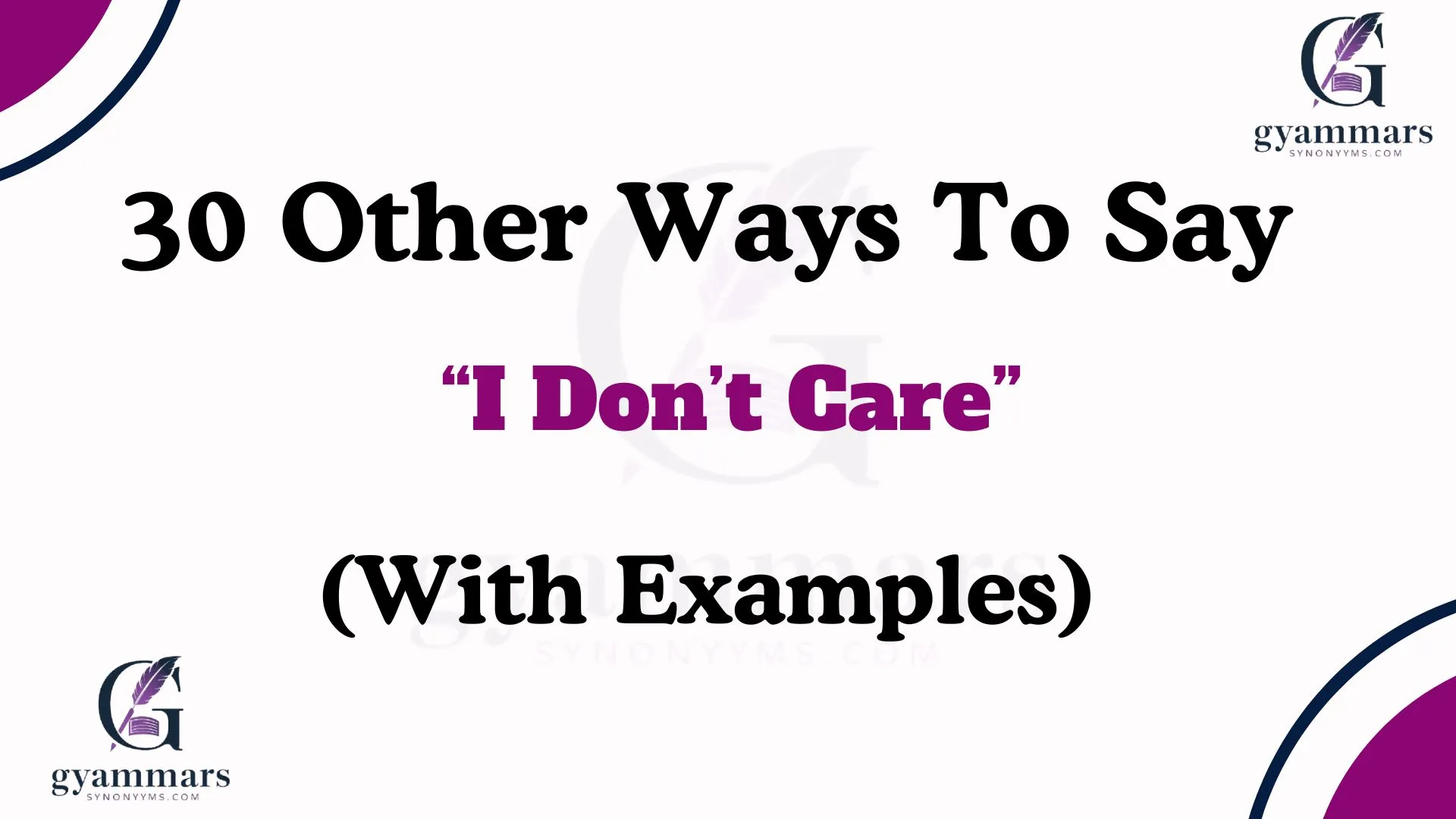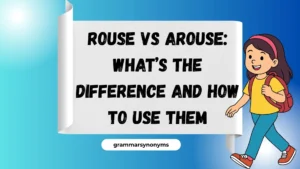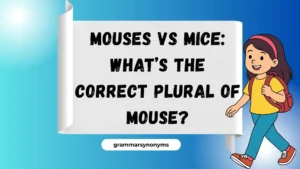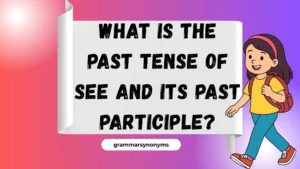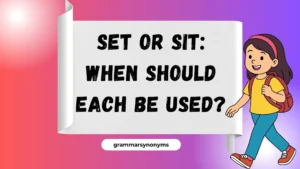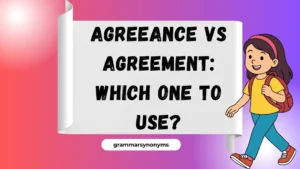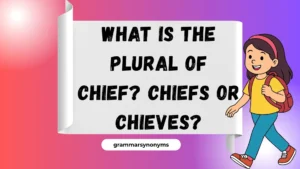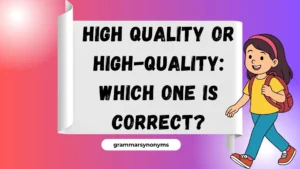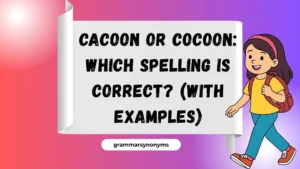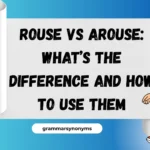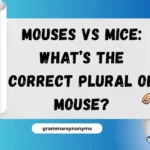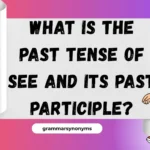Finding the right words to express your feelings can make all the difference in how your message is received. While saying “I don’t care” may seem straightforward, it can sometimes come off as indifferent, dismissive, or even rude. Whether you’re trying to be polite, professional, or empathetic, there are many thoughtful alternatives that can help you convey your message warmly and respectfully.
Below, you’ll find 30 alternative phrases for “I don’t care,” each with its definition, detailed explanation, example scenarios, best use, tone, and additional notes to help you express yourself more effectively.
What Does “I Don’t Care” Mean?
The phrase “I don’t care” typically means that something is not important to you or that you have no preference or opinion on a matter. It can be used casually to express neutrality or indifference, but in some contexts, it can come across as apathetic or dismissive.
Is It Professional or Polite to Say “I Don’t Care”?
In professional and polite conversations, directly saying “I don’t care” can sometimes seem harsh, unprofessional, or even disrespectful. Instead, it’s better to use a softer, more diplomatic alternative that still conveys indifference but with warmth and consideration.
Pros and Cons of Saying “I Don’t Care”
Pros:
- Direct and clear communication
- Efficient in casual settings
- Works well when honesty is required
Cons:
- Can come off as rude or dismissive
- May shut down conversations
- Not suitable for professional settings
Synonyms For “I Don’t Care”
- I’m Open to Anything
- It Doesn’t Matter to Me
- I Have No Preference
- I’m Good Either Way
- I’m Cool With Whatever
- Whatever Works for You
- I’m Okay With Either
- Do What Feels Right
- I’ll Let You Decide
- You Call the Shots
- I’m Fine With That
- Go for It!
- Not My Concern
- No Strong Feelings Either Way
- I’ll Go Along With That
- It’s Up to You
- Not Bothered Either Way
- I’m Indifferent
- You Choose, I Trust You
- Whichever is Easier
- Count Me In Either Way
- I Have No Strong Opinion
- I’m Happy With Whatever
- Whatever Floats Your Boat
- I’m Not Picky
- I Don’t Have a Preference
- Either is Fine by Me
- Do What You Think is Best
- Doesn’t Make a Difference to Me
- I’m Okay With Any Choice
1. I’m Open to Anything
Definition: Willing to accept any option.
Detailed Explanation: This phrase expresses flexibility while keeping a neutral and positive tone.
Example Scenario:
- Colleague: “Should we schedule the meeting at 10 or 2?”
- You: “I’m open to anything. Whatever works best!”
Best Use: Work settings, group decisions.
Tone: Friendly & cooperative.
Additional Notes: This phrase helps you sound engaged rather than indifferent.
2. It Doesn’t Matter to Me
Definition: No preference or concern about the choice.
Detailed Explanation: This phrase keeps the conversation light without sounding dismissive.
Example Scenario:
- Friend: “Do you want to watch a comedy or a thriller?”
- You: “It doesn’t matter to me! You choose.”
Best Use: Casual settings, everyday decisions.
Tone: Neutral, relaxed.
Additional Notes: Works well for minor choices but may sound detached in deeper conversations.
3. I Have No Preference
Definition: No strong opinion on the matter.
Detailed Explanation: This phrase communicates indifference in a polite way.
Example Scenario:
- Co-worker: “Should we use blue or green for the design?”
- You: “I have no preference! Both look good.”
Best Use: Work and casual discussions.
Tone: Neutral, respectful.
Additional Notes: Ideal for situations where being polite is key.
4. I’m Good Either Way
Definition: Happy with any option.
Detailed Explanation: This phrase makes indifference sound positive and cooperative.
Example Scenario:
- Partner: “Should we cook or order out?”
- You: “I’m good either way! Whatever works for you.”
Best Use: Relationships, teamwork.
Tone: Warm, easygoing.
Additional Notes: Sounds supportive rather than disinterested.
5. I’m Cool With Whatever
Definition: Comfortable with any decision.
Detailed Explanation: A casual and friendly way to express flexibility.
Example Scenario:
- Friend: “Do you want to go hiking or stay in?”
- You: “I’m cool with whatever. You decide!”
Best Use: Informal conversations.
Tone: Chill, laid-back.
Additional Notes: Avoid using in formal settings.
6. Whatever Works for You
Definition: Letting the other person decide.
Detailed Explanation: This phrase shows consideration for the other person’s preference.
Example Scenario:
- Teammate: “Should we start with the budget or project timeline?”
- You: “Whatever works for you!”
Best Use: Work, friendships, relationships.
Tone: Accommodating, considerate.
Additional Notes: Makes the conversation feel collaborative.
7. I’m Okay With Either
Definition: Comfortable with both choices.
Detailed Explanation: This phrase conveys a relaxed attitude while ensuring the other person knows you’re content with any outcome.
Example Scenario:
- Friend: “Would you rather drive or take a cab?”
- You: “I’m okay with either! You decide.”
Best Use: Friendly conversations, casual settings.
Tone: Neutral, easygoing.
Additional Notes: A soft and agreeable alternative that doesn’t sound dismissive.
8. Do What Feels Right
Definition: Encourages the other person to trust their own judgment.
Detailed Explanation: Instead of expressing disinterest, this phrase empowers the other person to make the best decision.
Example Scenario:
- Coworker: “Should we use bullet points or paragraphs in the report?”
- You: “Do what feels right! I trust your judgment.”
Best Use: Work, personal advice, relationships.
Tone: Supportive, considerate.
Additional Notes: This phrase shows trust and keeps the conversation warm and encouraging.
9. I’ll Let You Decide
Definition: Handing over decision-making responsibility.
Detailed Explanation: This phrase acknowledges that you’re fine with any option but gives the other person control.
Example Scenario:
- Partner: “Should we eat out or cook at home?”
- You: “I’ll let you decide!”
Best Use: Relationships, friendships.
Tone: Casual, nonchalant.
Additional Notes: This phrase works well when you truly don’t mind either option.
10. You Call the Shots
Definition: Giving full decision-making power to the other person.
Detailed Explanation: A fun, informal way to let someone take charge of the decision.
Example Scenario:
- Friend: “Where should we go this weekend?”
- You: “You call the shots! I’m good with whatever.”
Best Use: Friendships, informal discussions.
Tone: Playful, flexible.
Additional Notes: Adds a bit of enthusiasm and encouragement to the conversation.
11. I’m Fine With That
Definition: Expresses agreement without enthusiasm.
Detailed Explanation: This phrase shows that you don’t have a strong opinion but are okay with the decision.
Example Scenario:
- Colleague: “Let’s finalize this draft by Friday.”
- You: “I’m fine with that!”
Best Use: Work, general discussions.
Tone: Neutral, agreeable.
Additional Notes: Works well in both professional and personal settings.
12. Go for It!
Definition: Encourages someone to proceed.
Detailed Explanation: Instead of saying “I don’t care,” this phrase adds enthusiasm and support.
Example Scenario:
- Friend: “Should I get this new jacket?”
- You: “Go for it! It looks great on you.”
Best Use: Motivational, supportive conversations.
Tone: Encouraging, positive.
Additional Notes: A great alternative that makes you sound engaged rather than indifferent.
13. Not My Concern
Definition: Expresses that something isn’t your responsibility.
Detailed Explanation: Unlike other alternatives, this phrase creates distance from the situation.
Example Scenario:
- Coworker: “Should we go with the new policy or stick to the old one?”
- You: “Not my concern. You’ll have to check with management.”
Best Use: Work settings, avoiding unnecessary involvement.
Tone: Neutral to dismissive.
Additional Notes: Use with caution—it can sound cold if not delivered properly.
14. No Strong Feelings Either Way
Definition: Indicates indifference without being rude.
Detailed Explanation: A great way to keep the conversation neutral without sounding dismissive.
Example Scenario:
- Teammate: “Should we use a modern font or a classic one?”
- You: “No strong feelings either way. Whatever works best!”
Best Use: Work discussions, collaborative decisions.
Tone: Professional, polite.
Additional Notes: A mature and respectful way to show indifference.
15. I’ll Go Along With That
Definition: Willing to follow the decision.
Detailed Explanation: This phrase implies agreement and cooperation.
Example Scenario:
- Friend: “Let’s take the scenic route instead of the highway.”
- You: “I’ll go along with that!”
Best Use: Teamwork, casual outings.
Tone: Supportive, easygoing.
Additional Notes: Works well when you want to sound agreeable without expressing a preference.
16. It’s Up to You
Definition: A way to give someone full control over a decision.
Detailed Explanation: This phrase communicates trust and flexibility, allowing the other person to take the lead without making it seem like you’re uninterested. Unlike “I don’t care,” this phrase encourages the other person to make a choice without feeling dismissed.
Example Scenario:
- Person A: “Should we meet at 5 PM or 6 PM?”
- Person B: “It’s up to you! I’m fine with either.”
Best Use: When you want to let someone else decide while still sounding engaged and cooperative.
Tone: Polite, friendly, neutral.
Additional Notes: This phrase is widely used in both personal and professional settings, making it a safe and respectful choice.
17. Not Bothered Either Way
Definition: Expresses complete neutrality about a choice.
Detailed Explanation: This phrase indicates that you’re comfortable with any option and don’t feel strongly about the decision.
Example Scenario:
- Friend: “Should we watch a comedy or an action movie?”
- You: “Not bothered either way. You pick!”
Best Use: Casual settings, group decisions.
Tone: Relaxed, neutral.
Additional Notes: Works well in British English but can sometimes sound too indifferent.
18. I’m Indifferent
Definition: Expresses a complete lack of preference.
Detailed Explanation: This phrase is direct but not necessarily rude. It conveys that you truly have no interest in the choice being made.
Example Scenario:
- Coworker: “Do you prefer Monday or Tuesday for the meeting?”
- You: “I’m indifferent. Whatever works best for everyone.”
Best Use: Professional and personal conversations.
Tone: Formal, neutral.
Additional Notes: Can sound detached, so use it in formal discussions rather than personal ones.
19. You Choose, I Trust You
Definition: Gives decision-making power to someone else while expressing trust.
Detailed Explanation: This phrase reassures the other person that you trust their judgment and are fine with their choice.
Example Scenario:
- Spouse: “Should we buy the blue or black couch?”
- You: “You choose, I trust you. You have a great eye for design!”
Best Use: Relationships, decision-making moments.
Tone: Warm, trusting.
Additional Notes: This keeps the conversation positive and supportive rather than indifferent.
20. Whichever Is Easier
Definition: Prioritizes convenience over preference.
Detailed Explanation: Instead of showing disinterest, this phrase suggests choosing the most practical or efficient option.
Example Scenario:
- Teammate: “Should we meet at 2 PM or 3 PM?”
- You: “Whichever is easier for you!”
Best Use: Work, everyday planning.
Tone: Considerate, flexible.
Additional Notes: Ideal when you want to be accommodating without seeming uninterested.
21. Count Me In Either Way
Definition: Expresses willingness to participate regardless of the choice.
Detailed Explanation: This phrase conveys a positive attitude and enthusiasm while staying neutral about the specifics.
Example Scenario:
- Friend: “Should we go hiking or to the beach?”
- You: “Count me in either way!”
Best Use: Group activities, social events.
Tone: Enthusiastic, inclusive.
Additional Notes: Great for showing excitement without pushing a preference.
22. I Have No Strong Opinion
Definition: Clearly states that you don’t mind either option.
Detailed Explanation: A polite way to let others know that you’re open to any choice without sounding disengaged.
Example Scenario:
- Coworker: “Do you prefer the first or second draft?”
- You: “I have no strong opinion, both look good to me.”
Best Use: Professional discussions, neutral decision-making.
Tone: Professional, polite.
Additional Notes: Helps you avoid conflicts while still contributing to the discussion.
23. I’m Happy With Whatever
Definition: Shows openness to any choice while maintaining a positive attitude.
Detailed Explanation: This phrase makes it clear that you’re okay with anything and are in a good mood about it.
Example Scenario:
- Friend: “Should we order Chinese or pizza?”
- You: “I’m happy with whatever! You decide.”
Best Use: Friendships, casual settings.
Tone: Friendly, easygoing.
Additional Notes: Adds a warmth that “I don’t care” lacks.
24. Whatever Floats Your Boat
Definition: Lets the other person pick based on what makes them happy.
Detailed Explanation: A lighthearted phrase that expresses indifference in a playful way.
Example Scenario:
- Friend: “Should I dye my hair pink or purple?”
- You: “Whatever floats your boat!”
Best Use: Informal conversations, humorous interactions.
Tone: Casual, playful.
Additional Notes: Adds a bit of fun to the conversation while showing that you’re open to their choice.
25. I’m Not Picky
Definition: Indicates that you don’t have strict preferences.
Detailed Explanation: This phrase suggests that you’re flexible and happy with whatever choice is made.
Example Scenario:
- Server: “Do you want white or whole wheat bread?”
- You: “I’m not picky! Surprise me.”
Best Use: Dining, shopping, casual settings.
Tone: Easygoing, friendly.
Additional Notes: Helps soften indifference and make you sound more relaxed.
26. I Don’t Have a Preference
Definition: A neutral way to express lack of preference.
Detailed Explanation: This phrase is clear, direct, and polite, making it perfect for professional and casual settings.
Example Scenario:
- Colleague: “Would you rather present first or second?”
- You: “I don’t have a preference.”
Best Use: Work, formal discussions.
Tone: Neutral, professional.
Additional Notes: Avoids sounding dismissive while keeping things professional.
27. Either Is Fine by Me
Definition: Expresses that both options are acceptable.
Detailed Explanation: This phrase keeps the conversation smooth and open-ended.
Example Scenario:
- Partner: “Tea or coffee?”
- You: “Either is fine by me!”
Best Use: Everyday choices, casual interactions.
Tone: Neutral, friendly.
Additional Notes: Works best when both options are truly okay for you.
28. Do What You Think Is Best
Definition: Encourages someone to make the best decision.
Detailed Explanation: Unlike “I don’t care,” this phrase shows trust and respect for the other person’s judgment.
Example Scenario:
- Coworker: “Should we take the risk on this project?”
- You: “Do what you think is best.”
Best Use: Work, advice-giving, professional settings.
Tone: Respectful, thoughtful.
Additional Notes: Shows maturity and trust in others’ decisions.
29. Doesn’t Make a Difference to Me
Definition: Indicates that either choice will have the same impact on you.
Detailed Explanation: This phrase shows true neutrality while remaining polite.
Example Scenario:
- Friend: “Should we take the train or drive?”
- You: “Doesn’t make a difference to me. Whatever works!”
Best Use: Casual and professional settings.
Tone: Neutral, nonchalant.
Additional Notes: Works well for minor decisions but might sound uninterested in deeper discussions.
30. I’m Okay With Any Choice
Definition: Expresses full flexibility and acceptance.
Detailed Explanation: A friendly and adaptable way to show indifference without sounding dismissive.
Example Scenario:
- Spouse: “Should we vacation in the mountains or by the beach?”
- You: “I’m okay with any choice! Both sound amazing.”
Best Use: Planning, group decisions, personal conversations.
Tone: Warm, flexible.
Additional Notes: Keeps the mood positive and inclusive.
Final Thoughts
Replacing “I don’t care” with these thoughtful alternatives helps keep conversations warm, engaging, and respectful. Next time, try using a phrase that matches the situation and tone—it can make a big difference in how your words are received! 😊
FAQs
1. Why should I avoid saying “I don’t care”?
Saying “I don’t care” can sound dismissive, uninterested, or even rude, depending on the context and tone. Using more thoughtful alternatives helps maintain warmth, respect, and engagement in conversations.
2. What’s the most polite way to say “I don’t care” in a professional setting?
Polite alternatives include:
- “I don’t have a preference.”
- “Either option works for me.”
- “I trust your judgment.”
These phrases sound neutral and professional while still being engaged in the discussion.
3. What’s a casual way to say “I don’t care” without sounding rude?
If you want to be laid-back but not indifferent, you can say:
- “I’m good with whatever.”
- “No worries, you decide.”
- “Whichever works best!”
These expressions keep the conversation friendly and easygoing.
4. How can I express indifference in a supportive way?
Instead of sounding uninterested, you can use phrases like:
- “You choose, I trust you.” (Shows trust)
- “Do what makes you happy.” (Encourages the other person)
- “Whatever works best for you.” (Shows flexibility)
These alternatives let the other person know you care about their choice.
5. What’s the best alternative when making group decisions?
When discussing plans with a group, you might say:
- “I’m flexible, whatever works for the majority.”
- “I’m happy with any option.”
- “Count me in either way.”

“Mia Rose at Grammar Synonyms is your ultimate guide to mastering language with style and precision. Whether you’re looking to enhance your vocabulary, perfect your grammar, or discover the ideal synonym, Mia Rose offers expert resources and creative solutions to help you express yourself flawlessly. With Grammar Synonyms, unlock a world of language possibilities and elevate every piece of writing you create.
